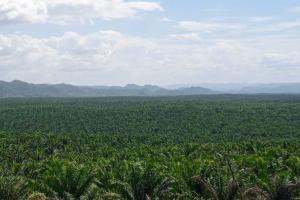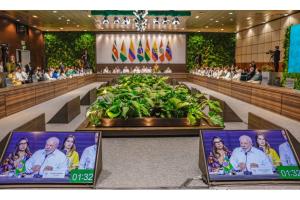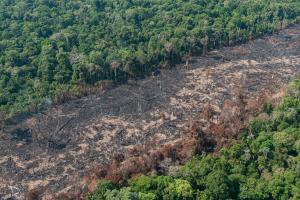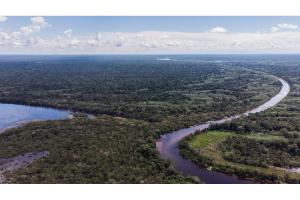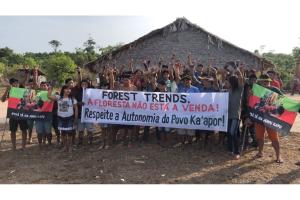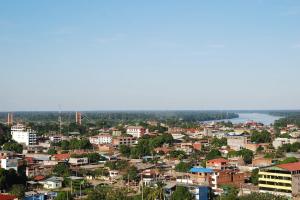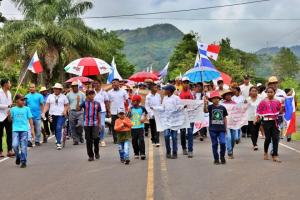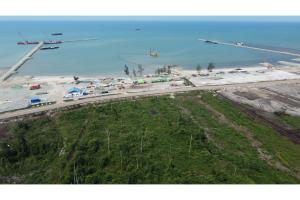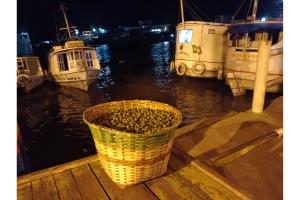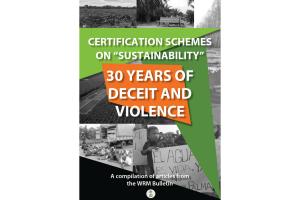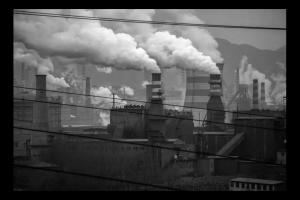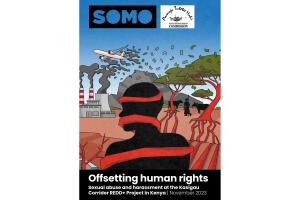We call on organizations to sign this petition in support of the Mayan Q’eqchi community Santa Elena in the northern region of Guatemala. The community is asking for international and national support in the face of recent threats and growing criminalization by Industria Chiquibul, a palm company that supplies palm oil to transnational corporations such as Nestle and Unilever. Read and sign the letter below.
The Green Economy
The Green Economy is a tactic used to “clean up” the image of corporations rather than address corporate capture and capitalism as the true drivers of deforestation. False solutions promoted under the Green Economy include certification, sustainable forest management, ecosystem services, REDD+, the bioeconomy, nature-based climate solutions, and zero net deforestation. Rather than stopping it, these “solutions” support corporate-driven destruction that is causing a deep social and ecological crisis.
Action alerts
28 February 2024
Bulletin articles
27 February 2024
The Amazon Summit: Extractivism and violence in the name of the “bioeconomy” and of “sustainability”
Using the argument of “sustainable development”, governments in the Amazon region continue providing incentives for extractivism. In the face of this, indigenous leader Alessandra Munduruku vents her thoughts: “What we need is the demarcation of indigenous territories. Enough talk of bioeconomy, of sustainability, when there is violence in the here and now.”
Bulletin articles
27 February 2024
The Amazon region is one of the final frontiers of resistance to capital expansion. This is epitomized by the struggles of social activists such as Chico Mendes, as well as by the presence of most of the earth’s remaining indigenous peoples in voluntary isolation. However, different forms of ‘green’ extractivism are currently and increasingly advancing on this territory.
Bulletin articles
26 February 2024
Indigenous communities of the Peruvian Amazon Basin have created a network to defend their rights to territory and self-determination. Their struggle is not only against deforestation, but also against conservation and carbon market projects—such as REDD projects—that cause more injustice and internal conflicts.
Bulletin articles
26 February 2024
The Ka'apor live in Alto Turiaçu, in the northwestern part of Maranhão state in Brazil. It is the largest indigenous territory of the Eastern Amazon and the largest portion of preserved rainforest in the region. Foreign companies have arrived there to propose REDD projects; this has caused conflict, and part of the community is rejecting these projects and organizing to resist.
Other information
26 February 2024
The certifying company has turned a blind eye to the fact that the Peruvian government has not only not demarcated the indigenous territory but has also given the company two contracts for concessions.
Bulletin articles
19 December 2023
Almost 30 years of UN climate negotiations have resulted in the establishment of policies and practices that facilitate the constant expansion of the fossil fuel-based economy (and its profits) while hiding its implacable negative impacts for the territories where it expands.
Bulletin articles
19 December 2023
President Jokowi calls the Kalimantan Industrial Park Indonesia (KIPI) “the largest green industrial area in the world”. But in reality, there is nothing green about the KIPI. It will lead to massive fossil fuel use, land and water grabbing, while threatening thousands of people in coastal communities with forced eviction. (Available in Indonesian).
Bulletin articles
19 December 2023
Carbon offsetting projects jeopardise small-scale farming, the felling of trees for subsistence, and other centuries-old practices of Indigenous Peoples and traditional communities in the Amazon region. Contracts promoted by companies undermine local care strategies and workers’ creativity, undervaluing or even denying them completely.
Bulletin articles
19 December 2023
A compilation of articles from the WRM Bulletin aims to expose the damaging role played by companies and organizations involved in certification schemes. After three decades, what is clear is that the only “sustainability” that they guarantee is that of corporations’ business and that of certification industry itself.
Bulletin articles
19 December 2023
In the context of the recent UN climate conference in Dubai, we propose to re-read the article Climatology / Ideology, from the WRM Bulletin 247, published in January 2020.
Other information
19 December 2023
In the wake of a year filled with scandals involving REDD-type projects, this report by SOMO released in November 2023 reveals that the North American company Wildlife Works is responsible for serious human rights violations in its Kasigau project, in Kenya.
